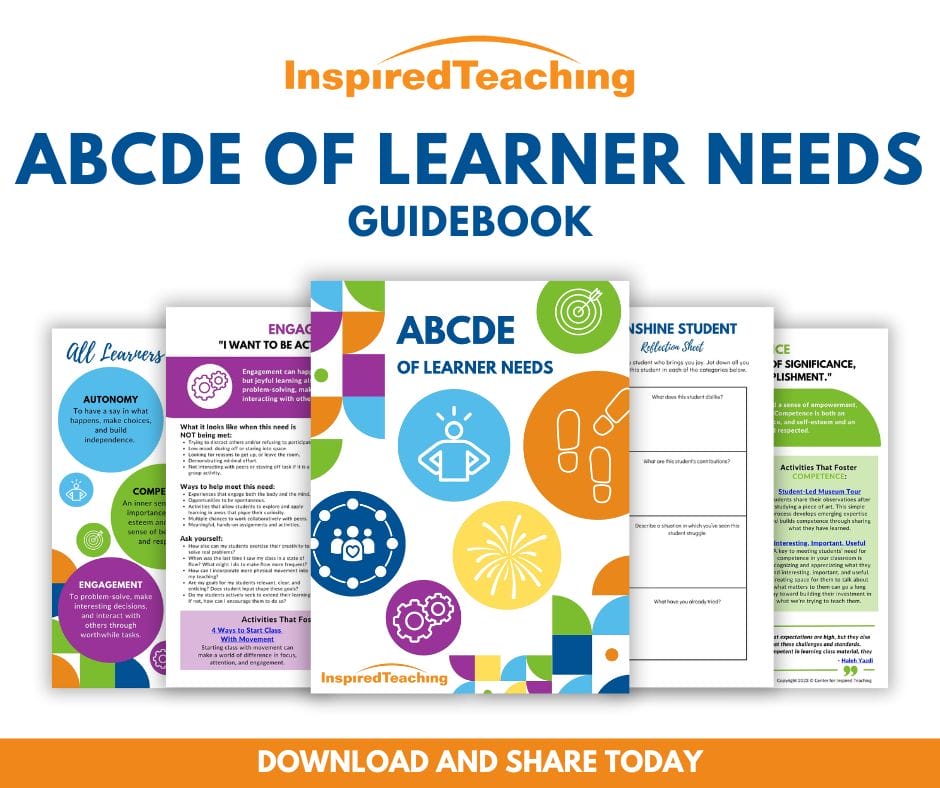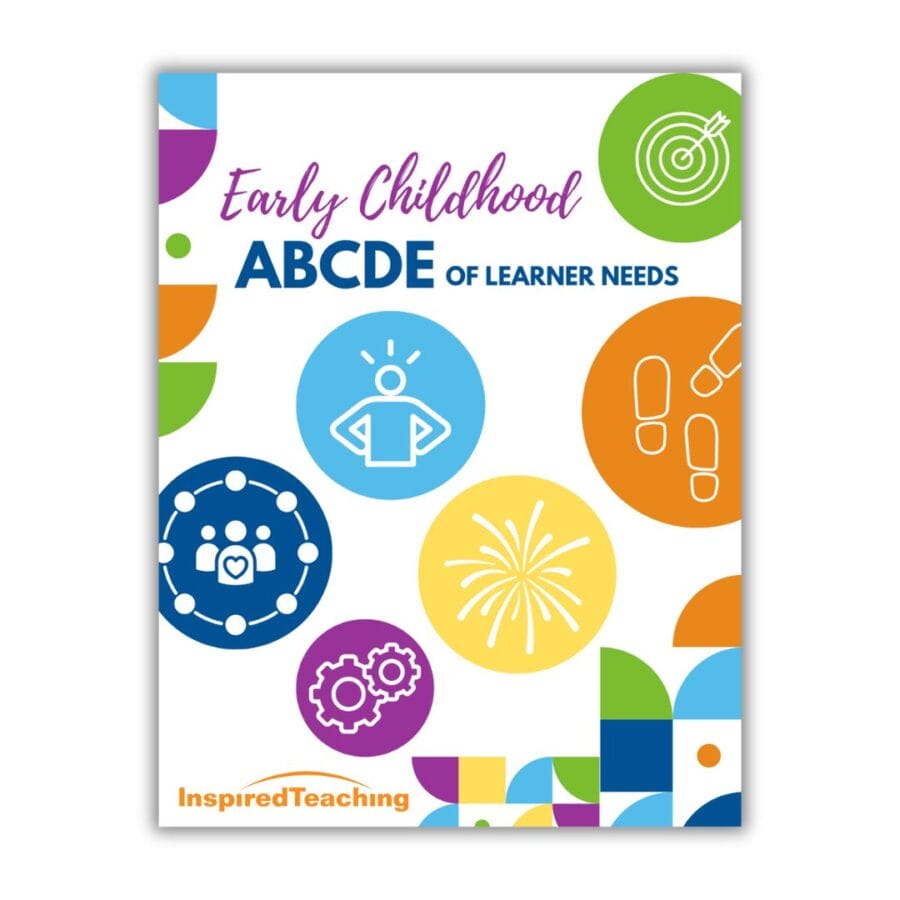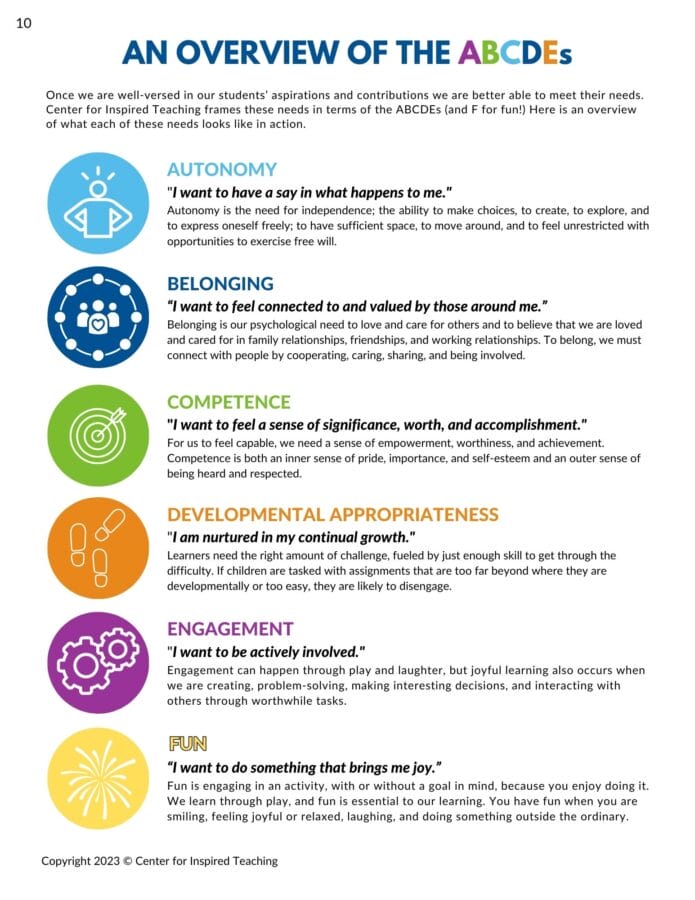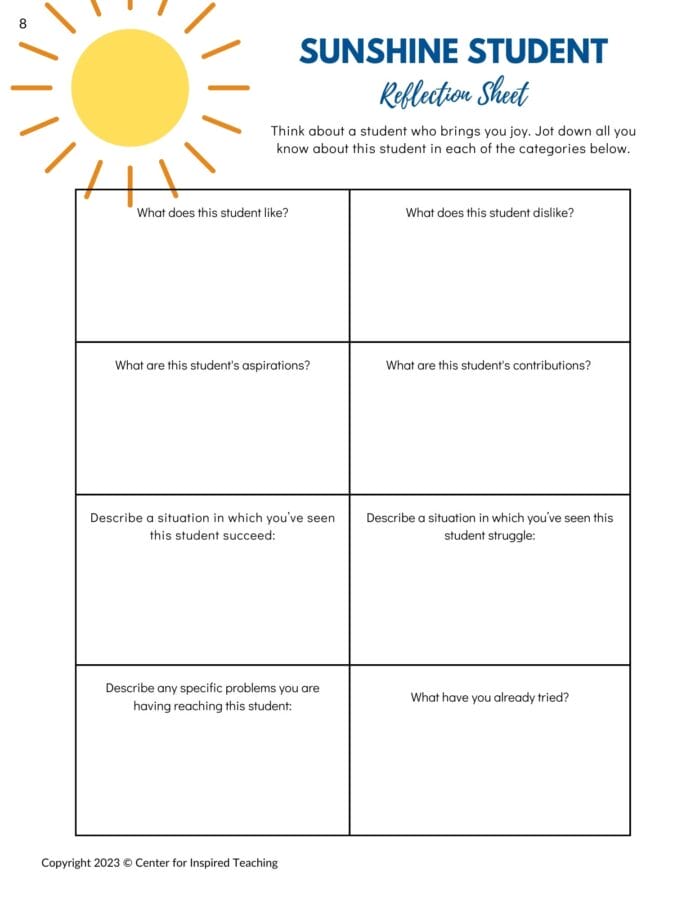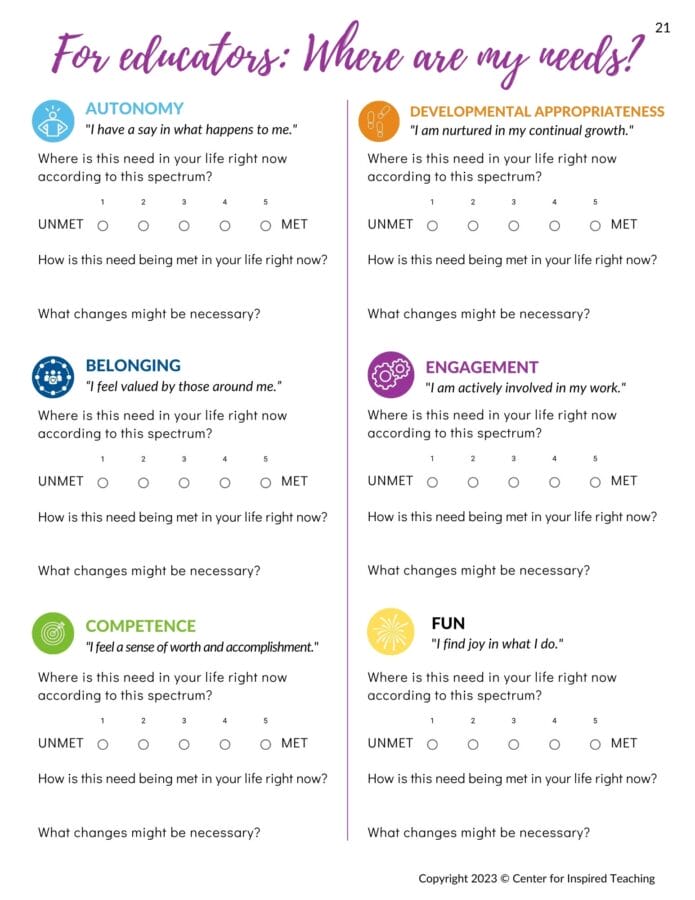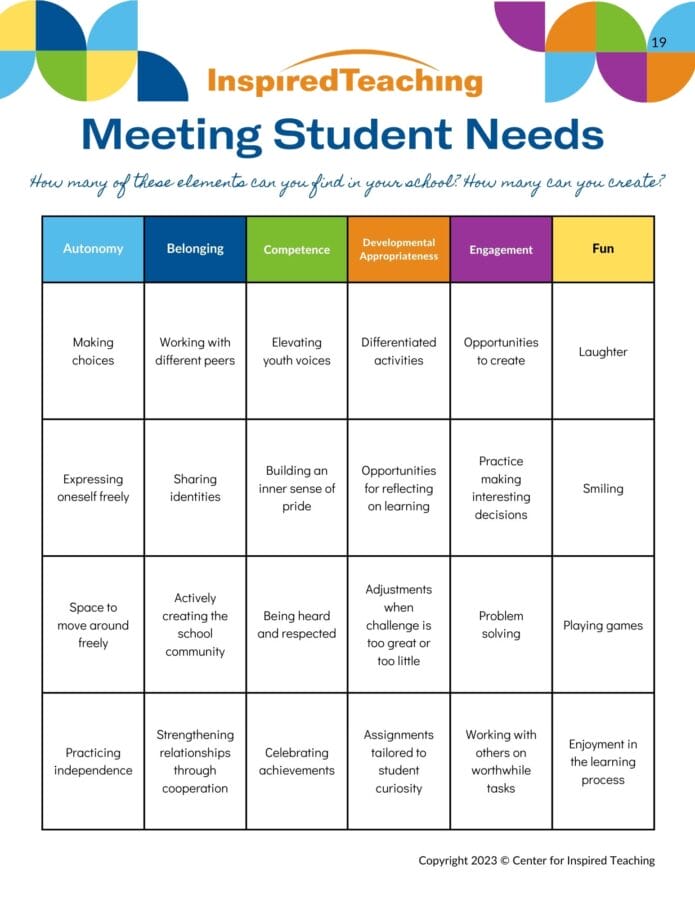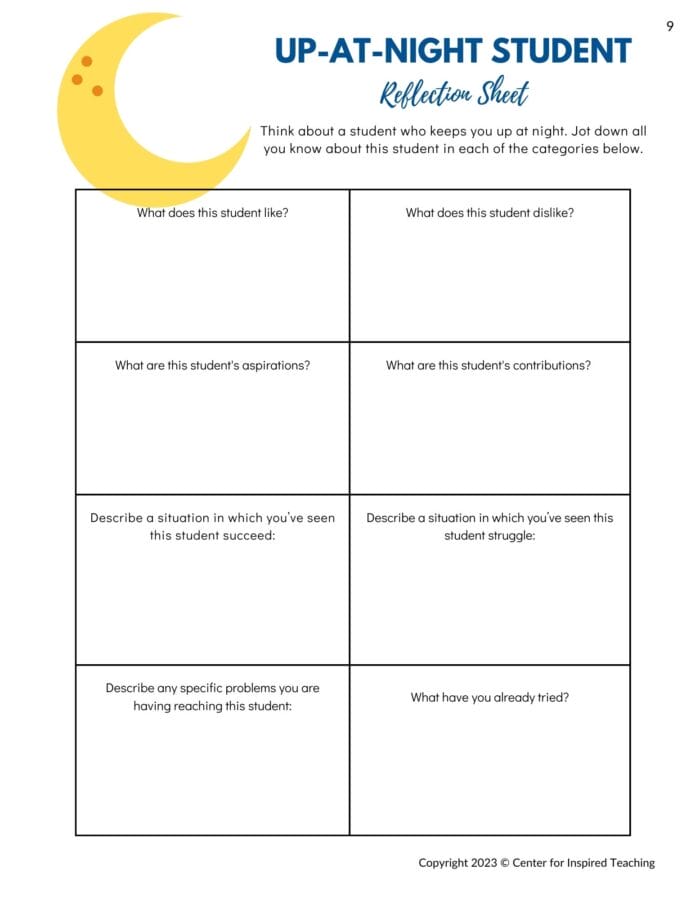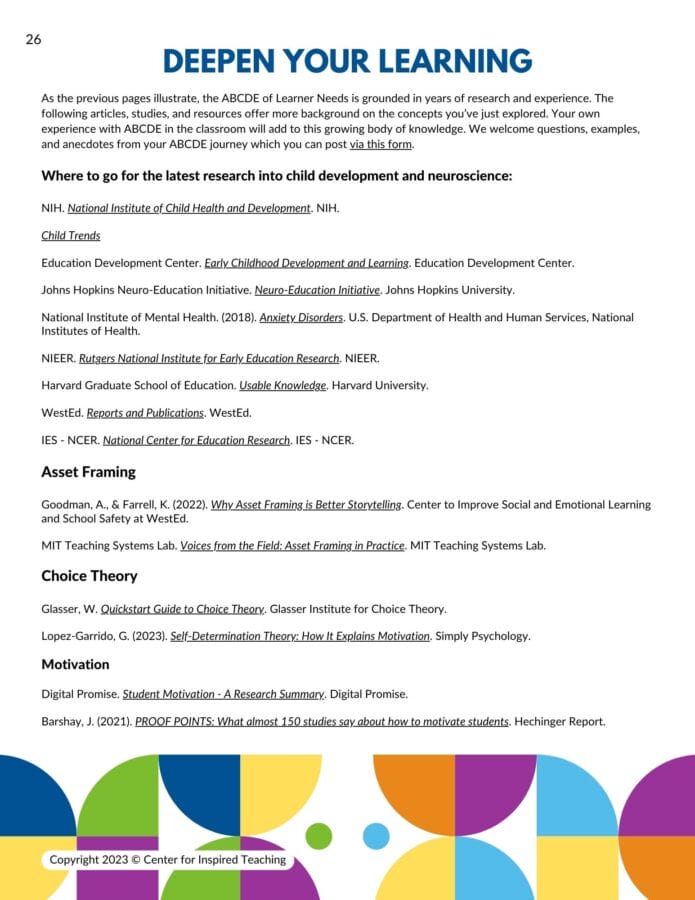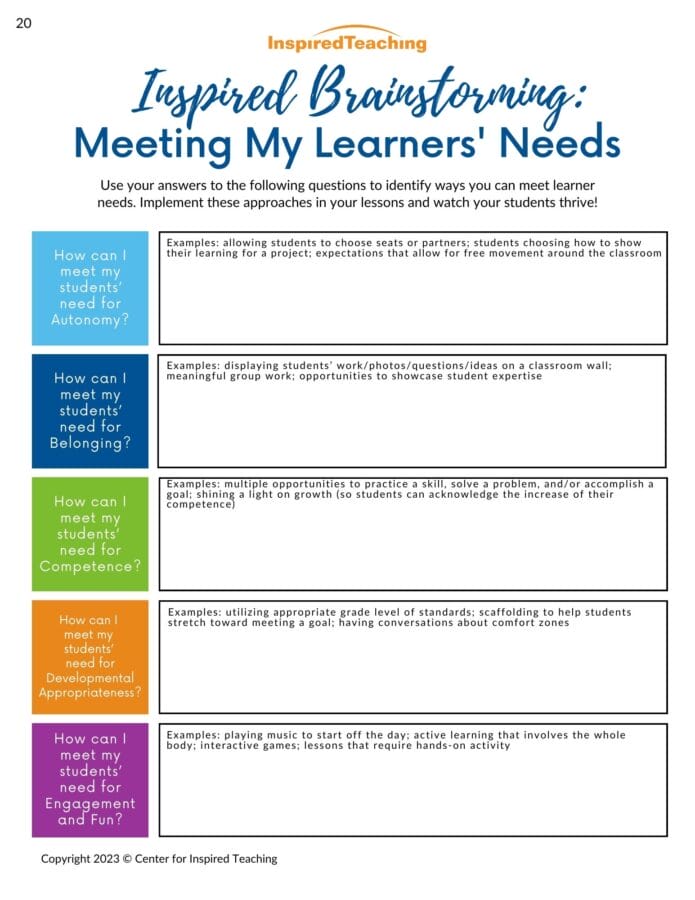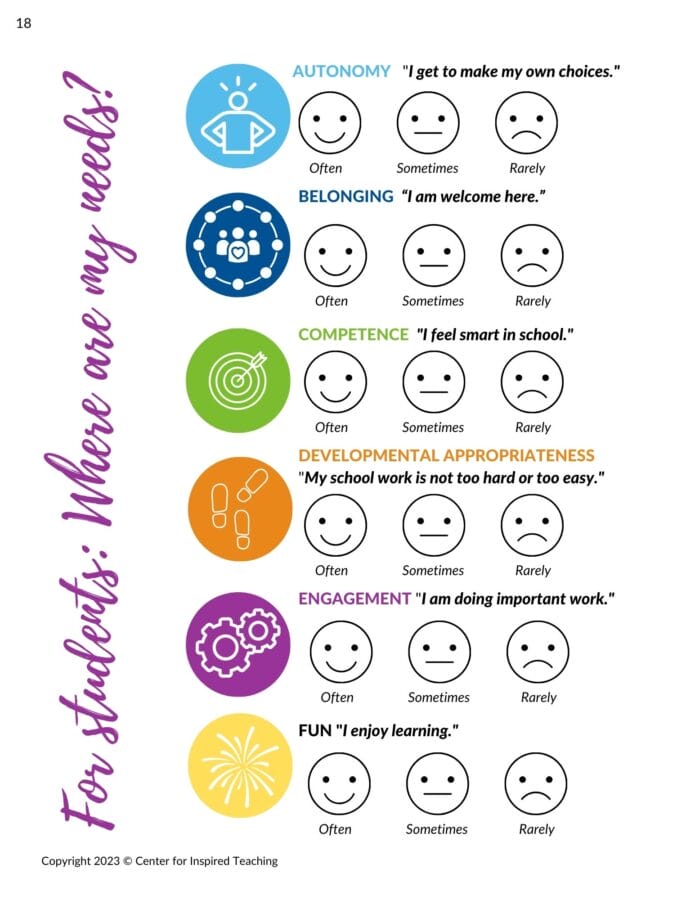ABCDE of Learner Needs
All behavior is communication. What are your students telling you?
All behavior is communication — including and especially what we might consider bad behavior. Often, in response to our students’ undesirable behavior, we institute rewards- or compliance-based systems in our classrooms and schools. But external motivation systems do not create classrooms of students who are interested and invested in their education. In fact, they are actively harmful to the pursuit of an engaging, effective learning environment. Rather than focusing on rewards- and compliance-based systems, educators can instead invest their resources into identifying and addressing their students’ core needs.
The award-winning Inspired Teaching ABCDE of Learner Needs provides an effective, simple framework for identifying and addressing gaps in students’ — and teachers’ — core needs.
Psychologist William Glasser defined five core human needs “which provide motivation for all that we do.” Inspired and informed by his work, as well as decades of research by psychologists, educators, and child development experts and nearly 30 years of direct experience working with teachers and school leaders, Center for Inspired Teaching has framed these needs in the context of school: Autonomy, Belonging, Competence, Developmental Appropriateness, and Engagement. Because we learn and grow best when our needs are met, when we’re not thriving, these unmet needs are likely the root of the problem.
Click each of the below to learn more.

Autonomy
Autonomy is the need for independence and self-determination; the ability to make choices, to create, to explore, and to express oneself freely; to have sufficient space, to move around, and to feel unrestricted in determining choices and free will. What does autonomy look like in your own life? Learn More.

Belonging
"I want to feel connected to and valued by those around me."
Belonging is our psychological need to love and care for others and to believe that we are loved and cared for in family relationships, friendships, and working relationships. To belong, we must connect with people by cooperating, caring, sharing, and being involved. Learn more.
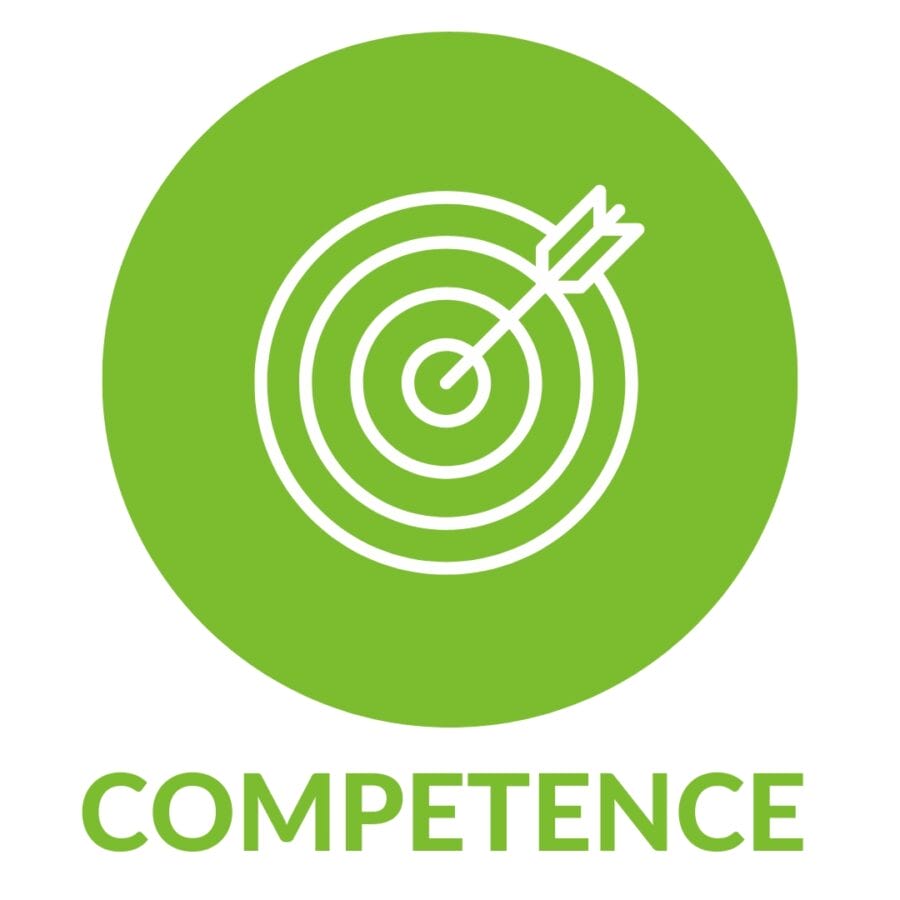
Competence
"I want to feel a sense of significance, worth, and accomplishment."
For us to feel capable, we need a sense of empowerment, worthiness, self-efficacy, and achievement. This means an inner sense of achievement, accomplishment, pride, importance, and self-esteem and an outer sense of being heard and respected and feeling competent and attaining recognition. Learn more.
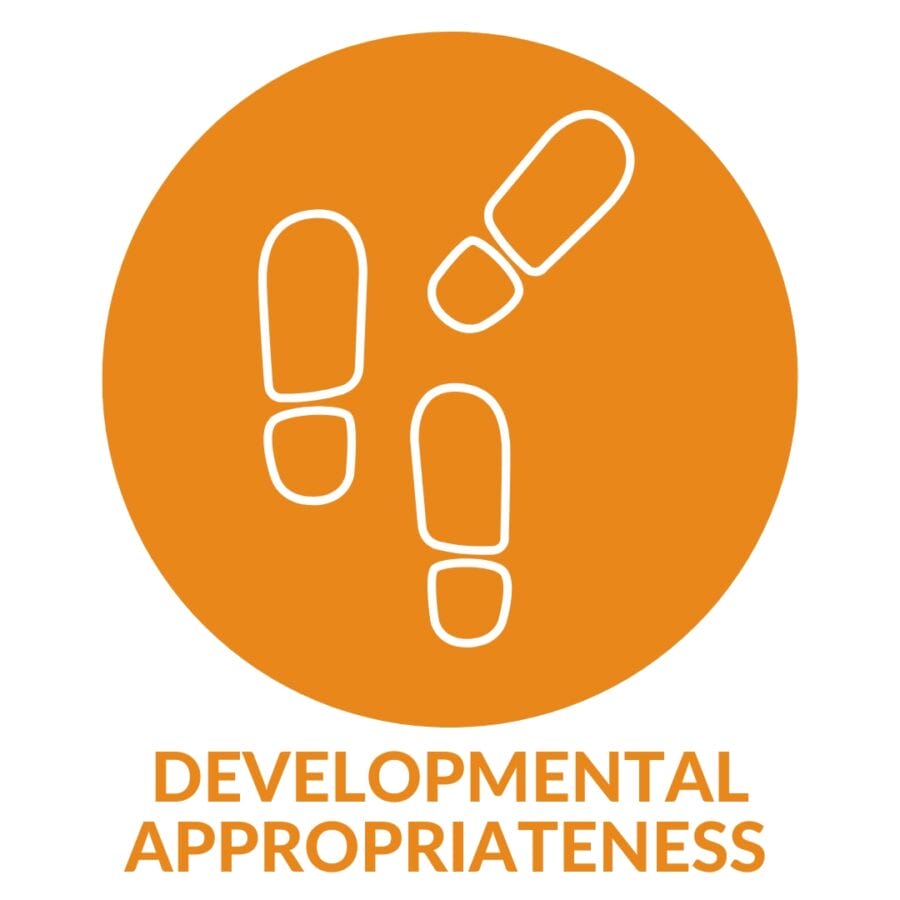
Developmental Appropriateness
"I am nurtured in my continual growth."
Learners need the right amount of challenge, fueled by just enough skill to get through the difficulty. If children are tasked with assignments that are too far beyond where they are developmentally or too easy, they are likely to disengage. Learn more.
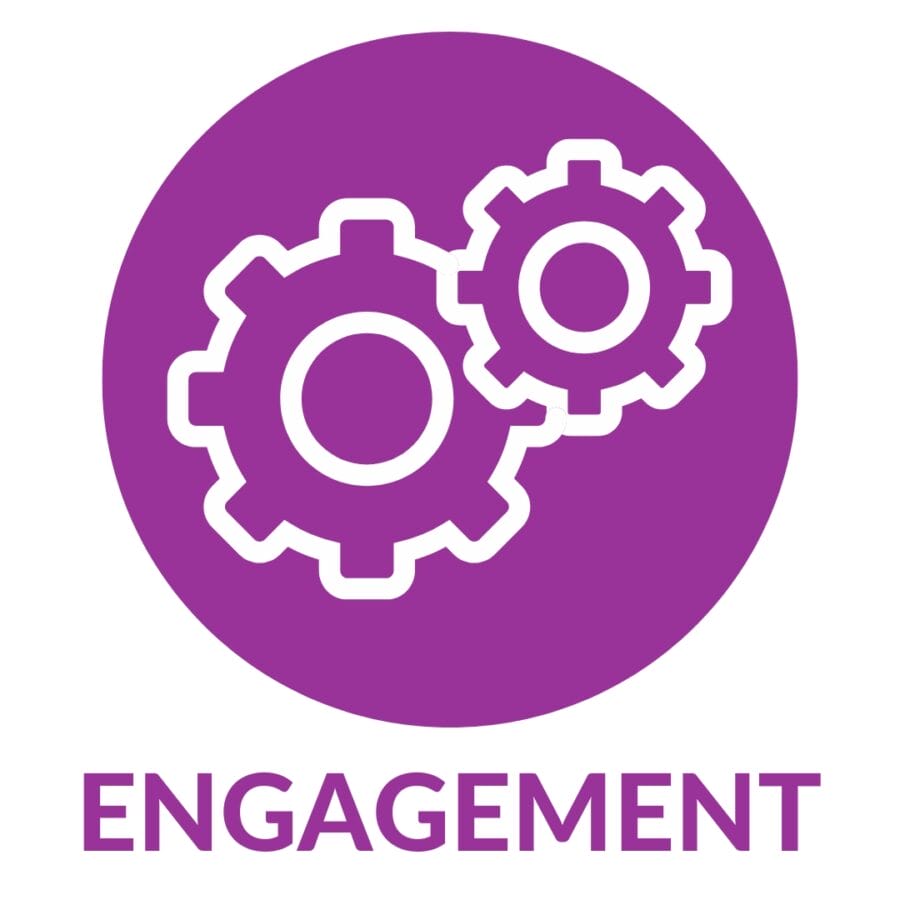
Engagement
"I want to be actively involved."
Engagement can happen through play and laughter, but joyful learning also occurs when we are creating, problem-solving, making interesting decisions, and interacting with others through worthwhile tasks. Learn more.

Fun
"I want to do something that brings me joy.”
Fun is engaging in an activity, with or without a goal in mind, because you enjoy doing it. We learn through play, and fun is essential to our learning. You have fun when you are smiling, feeling joyful or relaxed, laughing, and doing something outside the ordinary. Learn more.
“Something powerful happens when we switch from viewing problematic behavior as disruption, defiance, or disobedience, and see it instead as the result of unmet needs. We start looking for lasting solutions rather than handing out short-term rewards or punishments.”
– Aleta Margolis, Founder and President
ABCDE of Learner Needs Curiosity Cards
Each of these cards features a reflection question tied to one of the ABCDEs. Considering these questions can offer fresh insights into your students, your practice, and your school community. If you’re interested in learning more about the Curiosity Cards, please fill out the form!
Have a deck already? Click here for a list of 10 ways to put them to use today!
Curiosity Card Info Request
Digital Guidebooks
Whether you are an administrator, teacher, student, or caregiver, we all need Autonomy, Belonging, Competence, Developmental Appropriateness, Engagement, and Fun in order to learn and thrive.
We CAN meet these needs in schools and we don’t need to go to extreme measures to do so. This Guidebook includes links to classroom activities, printable reflection and planning sheets, posters for your classroom walls, and a whole section designed to be shared with families.
This resource is made available through the generous support of the Jack Kent Cooke Foundation.
This resource contains the same concepts as our original ABCDE of Learner Needs Guidebook but the examples, research, and activities included are tailored to the early childhood experience. Please share this guide with any early childhood educators in your life and let us know how you use it.
This resource is made possible through the generous support of the PNC Foundation.
Individual Classroom Resources
Additional Research→
All Inspired Teaching resources are research-based, developed through in-depth study of existing data and informed by on-the-ground experience of the teachers and school leaders in our community. Learn more about the research behind the ABCDE of Learner Needs, as well as additional sources of information to strengthen your understanding.
Center for Inspired Teaching and our ABCDE of Learner Needs framework has been selected for the HundrED Global Collection 2024! As one of 100 chosen innovations — out of more than 3,000 applicants worldwide — the ABCDE of Learner Needs has been recognized by HundrED’s panel of expert judges as an important tool educators everywhere can use to create classrooms rich with intrinsic motivation and where both students and teachers are engaged and enthusiastic. Learn more about HundrED and the Global Collection here.
Addressing needs in our classrooms is not separate from academic instruction. Each Inspired2Learn activity included in the ABCDE of Learner Needs Guidebooks meets Common Core and CASEL standards, as well as the latest OSSE SEL standards.
OSSE 2024-2025 Updated SEL Standards
Competency 1: Self Awareness
SA.3-5.8 Identifies one’s own personal qualities and interests, as well as those of others
SA.3-5.10 Describes and prioritizes strengths and interests that one wants to develop
SA.3-5.15 Knows when to seek help or support from an adult based on situational context
SA.6-8.11 Develops a plan to work through an unresolved problem
SA.9-11.7 Acknowledges one’s interests, motivators and aspirations, and demonstrates
self-efficacy and confidence in one’s ability to pursue those interests and goals.
SA.9-11.10 Identifies and seeks out constructive role models and mentors to support
personal growth
Competency 2: Self Management
SM.3-5.6 Uses strategies (e.g., naming the desired future state, working with others) to
persist toward reaching a goal, despite setbacks, with adult support
SM.6-8.10 Identifies the organizational skills and strategies to work toward long-term
personal and academic goals with support as needed
Competency 4: Relationship Skills
RS.3-5.2 Uses interpersonal skills to learn and connect with others to forge new
relationships
RS.3-5.12 Recognizes how each group member’s skills contribute toward group goals
RS.6-8.1 Practices active listening skills and asks probing and clarifying questions to seek
understanding
RS.6-8.11 Notices and names the skills of others by identifying their strengths and
weaknesses and works with others to maximize skills to achieve common goals
RS.9-11.3 Identifies strategies to maintain healthy relationships and build trust in a variety
of relationships
RS.9-11.7 Practices teamwork and collaborative problem- solving in a variety of contexts
(e.g., classroom, school community, community-at- large, social media)
Competency 5: Decision-Making and Agency
DMA.3-5.3 Chooses an action after considering the potential consequences of one’s choice
DMA.9-11.5 Evaluates ethical, safety and societal consequences when making decisions
To have more insights, information, and resources like ABCDE of Learner Needs delivered directly to your inbox every week, subscribe to Hooray For Monday!
If you are interested in creating a custom approach for your classroom based on ABCDE of Learner Needs, please contact Director of Teaching and Learning Jenna Fournel: jenna@inspiredteaching.org

